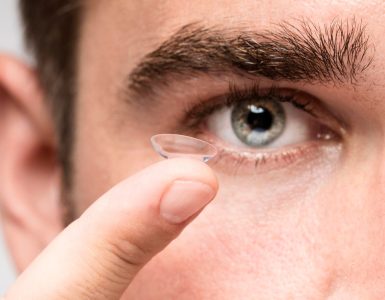With advances in digital technology and the proliferation of on-screen devises, not to mention the increase in working from home options and on-line schooling, you may be finding the extra hours of screen time are causing a strain on your eyes. You may be finding yourself suffering from headaches or neck and shoulder pain. Your eyes may be dry, red and itchy or feeling really tired and you may be experiencing blurred or double vision.
Whether you are experiencing any symptoms of digital eye strain (Computer Vision Syndrome) or not, there are things you can put into place to help you to adjust to your new daily regime without your extra screen time affecting your eyes and your vision. By creating a better work environment and managing your screen time effectively, it is possible to greatly minimise your chances of suffering from eye strain.
Rest and refocus your eyes.
It is the continuous use of your digital screen that is a big risk factor in whether you experience eye strain. It is important that you take regular breaks to rest and refocus your eyes. After each two hours of computer time, take 15 minutes break to rest your eyes by attending to other non-screen tasks. To give your eyes the opportunity to relax and refocus, it is recommended that you follow the 20-20-20 rule. Every 20 minutes look at something 20 feet away for 20 seconds thereby giving your eyes a break from focussing on things that are up close.
Blink Often
Did you know that research has shown that people blink 66% less when they are looking at a computer or digital screen? Blinking helps to keep your eyes lubricated, and by not blinking enough you may end up with eyes that are dry and irritated. Be mindful of how often you are blinking and if necessary over-the-counter eye drops should help.
Reduce glare on the screen
Light reflecting on your screen causes glare. This could come from overhead lighting or nearby windows. It may be necessary for you to adjust your lighting by using a lower wattage light bulb, by closing curtains or blinds or moving your screen. You could also choose to use a screen glare filter for your computer screen.
Adjust screen brightness
The light around you can also affect how bright you need your screen to be. This may change at various times of the day, at night, and from day to day depending on the weather. If you find that your screen is significantly brighter than your surroundings, you should ensure that you adjust it. A screen that it too bright causes your eyes to work harder to see it.
Maintaining Correct posture
Believe it or not, having poor posture can increase your risk of eye strain! It is important that your work space is designed well. Ensure that you have a well-designed chair with good back support that is set at the right height allowing you to sit up straight with your feet flat on the floor. Your computer screen should be between 50 and 70 centimetres from your eyes (about an arms-length) and positioned slightly below eye level. It is important to avoid slouching or slumping forward in your chair as this will not only potentially cause a sore neck or headaches, but also strain your eyes from being too close to the screen.
Adjust the light settings on your phone at night
The blue-light wavelengths emitted from your digital devices produce high amounts of energy which can be harmful if over-exposed to them, especially if we look at them in the dark or for excessive amounts of time. They are also known to interfere with your natural sleep cycle. There is a function available on your phone that will allow you to adjust the setting to a warmer tone. Setting your phone to adjust to the warmest tone at night time will help to counter the effects of blue light.
By being proactive in the implementation of these guidelines, you can be assured that you are doing all you can to maintain the safety and health of your eyes during your screen time.
If you have any concerns at all about how your screen time is affecting your eyes and your vision, contact your optometrist for advice and a comprehensive eye examination.




